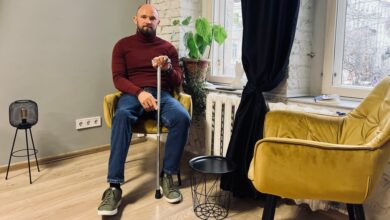Should you brush your teeth before or after breakfast?

Brushing my teeth first thing when I wake up is as ingrained in my morning routine as putting on my glasses or taking a shower. The minty freshness gets my lizard brain ready for breakfast and the day in general, I told myself.
So imagine my surprise and horror when I learned that my girlfriend would only brush after breakfast – “What’s the point if your teeth just get dirty again?” she would argue.
Her opinion was clearly blasphemy, but a small part of myself had to agree. So I responded the only way I knew how: by interviewing experts and learning way too much about oral hygiene.
The truth, it turns out, is more complicated.
The case to brush your teeth before breakfast
Dr. Feisel Haji is an oral and maxillofacial surgeon who works in Toronto SoHo dentistry offices. While there is “no right or wrong answer here,” he said, “there are arguments for pros and cons for both.”
A lot of plaque — a sticky, bacteria-laden film that appears on teeth — accumulates during our sleep, Haji explains. Meanwhile, “most of our breakfasts tend to be sour. Orange juice, apple juice – and it’s often high in carbs, too.
The combination isn’t ideal: Acidic foods can erode enamel, and Haji said plaque bacteria would use the carbs in our breakfast to make more acid, making us more susceptible to tooth decay.
But brushing beforehand would remove plaque, and the motion of brushing stimulates saliva production, which in turn protects against acid, Haji said.
Dr. Aviv Ouanounou is an associate professor of pharmacology and preventive dentistry at the University of Toronto. He tells me that the timing of one’s morning brush is “a point of controversy.”
Research shows that “acidic breakfast foods can weaken your enamel about 45 minutes after eating,” Ouanounou noted. If you brush during this time, the force of your brushing can damage your teeth, he said.
“Brushing before breakfast has a number of other benefits – for example, it has been shown to increase saliva production,” he continued. “And increasing saliva production is very important because saliva contains a lot of enzymes and proteins that are going to protect your teeth.”
The case for brushing after breakfast
There are also arguments for brushing after breakfast, hence the controversy.
For example, one of the main benefits of brushing your teeth is coating those chompers with fluoride-laden toothpaste. Fluoride helps rebuild and strengthen tooth enamel, protects against acids and prevents tooth decay, the dentists say.
By brushing after breakfast, “you’ve laid the foundation for having fluoride in the teeth for the next few hours… The teeth are ‘charged up’ for the next few hours,” Haji said. If you brush earlier, some of that fluoride will wash off during breakfast.
Brushing after breakfast also helps remove breakfast residue from your teeth, which feed bacteria that promote tooth decay, the experts continue. Ouanounou reiterates his recommendation to wait 45 minutes to an hour to brush after eating, and recommends rinsing with an alcohol-free mouthwash after breakfast if you can’t wait (although that’s no substitute for brushing).
At the end of the day, the benefits of either practice are relatively minor compared to the importance of brushing, the two add. “The most important thing is to brush sometime in the morning to get that plaque off the teeth and get that salivary stimulation,” Haji said.
Should you floss before or after brushing?
The answer, according to Ouanounou, is simple: “It is better to floss your teeth and then brush your teeth.”
The reasoning goes back to fluoride. By flossing, you clear out plaque and food buildup between your teeth, leaving more room for toothpaste to get into the nooks and crannies, Ouanounou said.
He also recommends finishing your routine with alcohol-free mouthwash: “Alcohol isn’t good for your gums, for your teeth,” he said. “Research has shown that this (routine) is very beneficial in reducing gingivitis and, to some extent, tooth decay.”
Haji says the order of operations here isn’t at all as “definitely critical” as flossing, adding that most people don’t floss correctly — just putting the string between your teeth isn’t enough, you also need to floss under the gums properly (yes , it can be done).
But something is better than nothing, Haji continued, “Flossing is one of those things that, however you do it, will be helpful.”
How to properly brush your teeth
The most important thing everyone should do is brush at least twice a day — possibly more if you have dental disease — and do it for at least two minutes at a time, Haji said.
He recommends setting a timer for your brushing: “I think when you start timing yourself, you realize, ‘That’s actually longer than what I’ve done so far.'”
Haji and Ouanounou also recommend using soft bristles: “Brushing your teeth with hard bristles can cause recessions and cause toothbrushes to chafe,” Ouanounou said.
“One of the most important things to remember is not to be too aggressive, but to be thorough,” added Haji. “We never want to use a hard or medium brush. We don’t want to scrub too hard. It is not a matter of forcing, but it is a matter of actually entering all areas.”
Ouanounou recommends using an electric toothbrush if possible: “Research shows that electric toothbrushes are much better than manual toothbrushes at removing plaque and reducing gingivitis.”
He adds, “There is some evidence that rotating, oscillating brushes are better than the others,” but that “in general, electric toothbrushes are better.”
The takeaway meals
Personally, I stick to brushing before breakfast – waiting an hour after dinner just doesn’t suit me, and I like to start the day with clean teeth. But as the experts say, at the end of the day, the differences in this routine are relatively minor — as long as you brush sometime in the morning, you’ll get those benefits.
“When we talk about daily oral hygiene, it seems simple enough,” said Haji. “But it’s harder to put it into practice as a daily habit.”
“But when we do it, it really sets the stage for preserving our teeth for a lifetime.”





